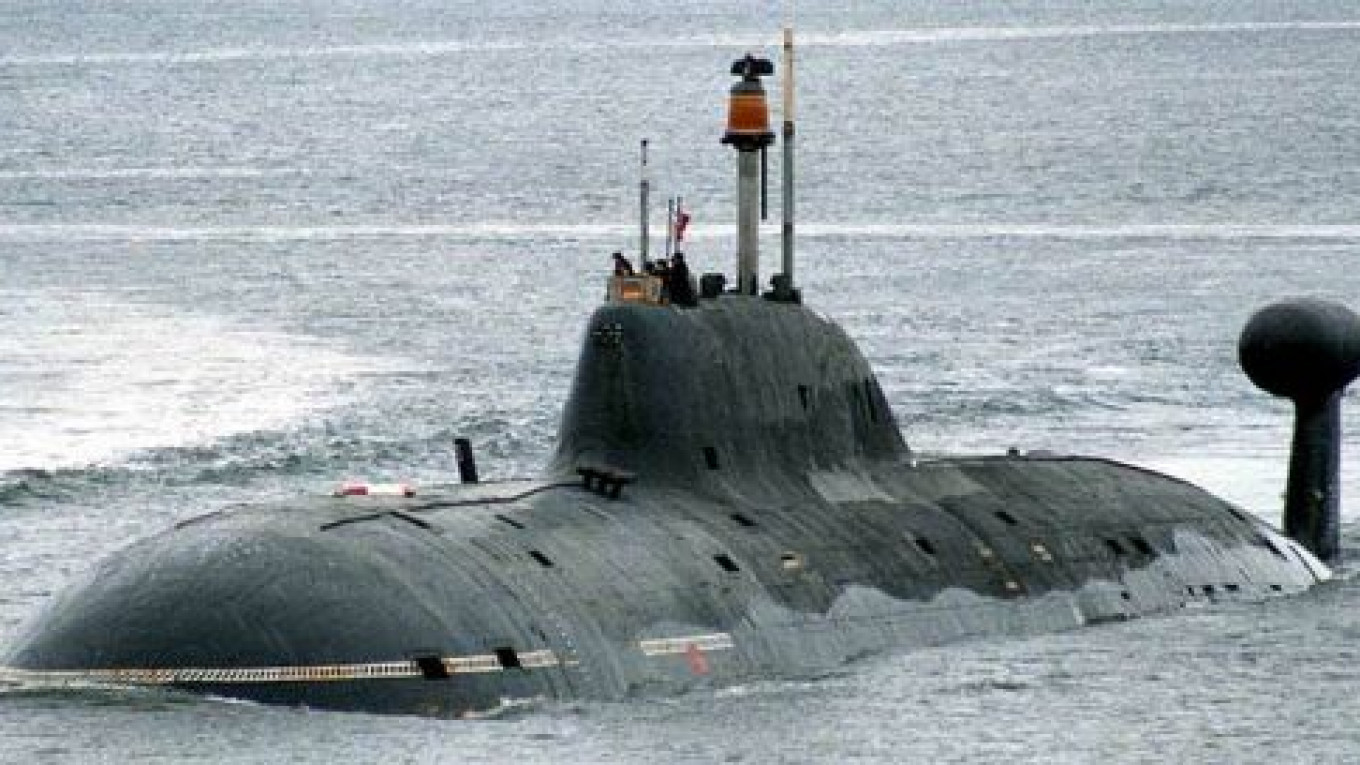A Russian nuclear-powered submarine operated in restricted U.S. waters for up to a month without U.S. Navy officials raising the alarm, a news report said.
The Akula-class submarine, an attack warship capable of carrying long-range ballistic missiles, traveled in the Gulf of Mexico in June and July, the Washington Free Beacon reported Tuesday.
That Russian bombers made incursions into strategic U.S. airspace over Alaska and California at the same time was taken as a sign of Moscow's growing military assertiveness by the authors of the report.
The submarine patrol comes at a time when President Barack Obama is planning defense cuts of up to $487 billion over the next 10 years, and Russian analysts speculated that the news leak was a means of applying pressure on the Obama administration to maintain defense spending.
Igor Korotchenko, a member of the Defense Ministry's Public Council, stressed that the notion of a Russian military threat was being used to persuade U.S. officials that budget cuts to the defense industry would harm the United States' national security.
U.S. officials consulted by the Washington Free Beacon, on the other hand, took the Akula's stealth voyage through the Gulf as a signal of Russian intent.
“Sending a nuclear-propelled submarine into the Gulf of Mexico-Caribbean region is another manifestation of President Putin demonstrating that Russia is still a player on the world’s political-military stage,” naval analyst Norman Polmar told the Washington-based newspaper.
“The Russian Navy provides him with a means of ‘showing the flag’ that is not possible with Russian air and ground forces,” Polmar said.
Senator John Cornyn, a Republican Party member who sits on the Senate Armed Services Committee, said the incursion showed that Obama's much-touted “reset” policy with Russia had failed.
On Wednesday, Korotchenko, who also edits Natsionalnaya Oborona (National Defense) magazine, reacted with pride to news of the Russian craft's undercover operations off the U.S. coast.
“This tells us that Russia still has potential and that the country is capable of missions that cover our fleet in prestige and respect,” Korotchenko told the Vzglyad newspaper.
In a message posted on social-networking site Twitter, Korotchenko added that after State Department complaints, the Foreign Ministry explained that the Akula's voyage was as a means of combatting international terrorism.
The Akula, which differs from older submarine models by its greater stealth capabilities, is the main submarine class employed by the Russian fleet, Interfax reported.
It was not clear whether the undetected Russian vessel was an Akula-I, or a more sophisticated Akula-II. In total, 15 such submarines have been produced.
According to the Washington Free Beacon, a Russian attack submarine last penetrated U.S. strategic waters in 2009.
Related articles:
A Message from The Moscow Times:
Dear readers,
We are facing unprecedented challenges. Russia's Prosecutor General's Office has designated The Moscow Times as an "undesirable" organization, criminalizing our work and putting our staff at risk of prosecution. This follows our earlier unjust labeling as a "foreign agent."
These actions are direct attempts to silence independent journalism in Russia. The authorities claim our work "discredits the decisions of the Russian leadership." We see things differently: we strive to provide accurate, unbiased reporting on Russia.
We, the journalists of The Moscow Times, refuse to be silenced. But to continue our work, we need your help.
Your support, no matter how small, makes a world of difference. If you can, please support us monthly starting from just $2. It's quick to set up, and every contribution makes a significant impact.
By supporting The Moscow Times, you're defending open, independent journalism in the face of repression. Thank you for standing with us.
Remind me later.






